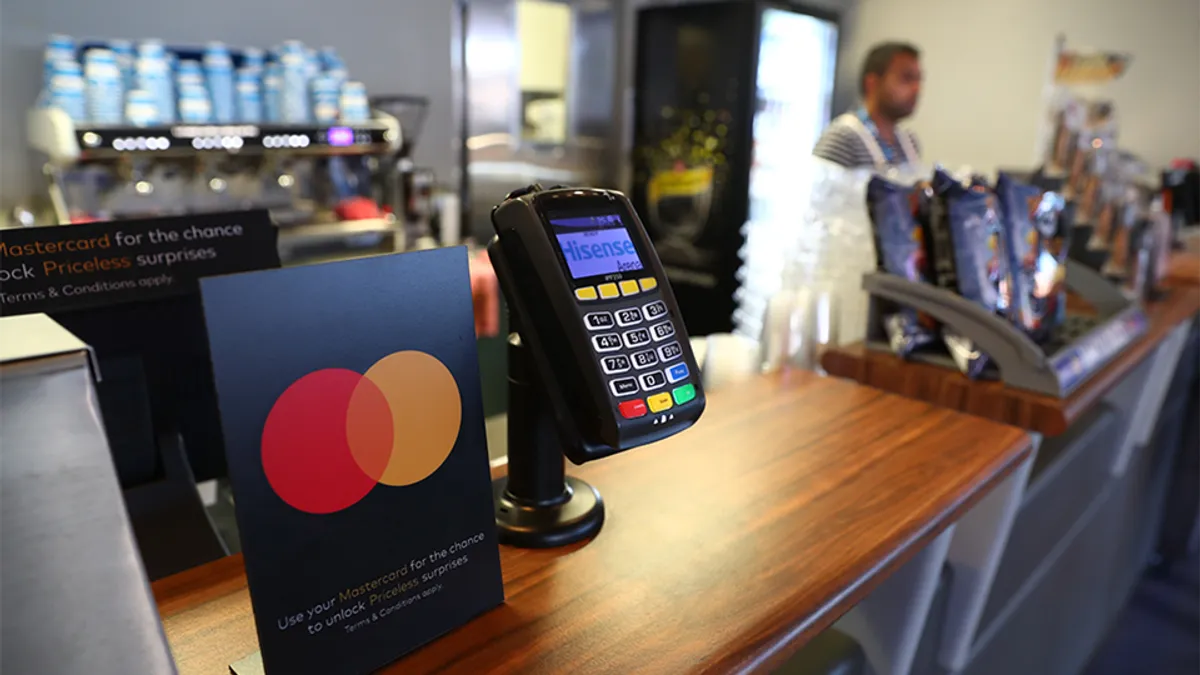Dive Brief:
- Mastercard CEO Michael Miebach on Thursday said the card network company is considering ways to further incorporate generative artificial intelligence, noting it already does so to create data sets used to compare and find threats in the cybersecurity area.
- Internally, generative AI “might be a good solution for us when it comes to customer service propositions and so forth,” Miebach said during Mastercard’s first quarter earnings conference call with analysts. He added that the company is “actively engaged on that” idea.
- Still, as the technology poses opportunities and risks, Mastercard’s application of AI needs to be done carefully, Miebach said. “We approach data privacy in a principled way, we approach the crypto space in a principled way, and the same thing applies here,” he said.
Dive Insight:
After JPMorgan Analyst Tien-Tsin Huang asked during the earnings call Thursday how Purchase, New York-based Mastercard is thinking about generative AI and its potential impact on the business, Miebach acknowledged that’s been a red-hot topic lately.
As the technology has evolved rapidly, so have potential uses of it, which has inspired companies to explore how they can employ generative AI. Regulators have begun to take notice: Consumer Financial Protection Bureau Director Rohit Chopra said Tuesday his agency is closely monitoring financial firms’ use of generative AI and ChatGPT-like technologies.
AI was mentioned several times during the Electronic Transactions Association’s Transact conference in Atlanta this week, including during a panel discussion focused on harnessing machine learning and AI for merchant and consumer benefit. Franchisors might use AI to forecast potential locations, or use machine learning to predict consumer purchasing intent, panelists said.
During remarks Tuesday at the conference, ETA CEO Jodie Kelley said about one-quarter of small- and medium-sized businesses are using AI in payment processing.
Mastercard has been using AI for the better part of the last decade, and it’s embedded within a range of the company’s products, Miebach said. Cloud-based cybersecurity company Baffin Bay Networks, which Mastercard acquired in March, uses AI-enabled threat protection tools, he said. Additionally, Mastercard employs AI in its “personalization products,” he said, without providing further detail.
“We’ve encouraged our employees to experiment with the technology, but we set very clear guardrails – don’t do it in production,” Miebach said.
Ultimately, AI is “something that we cannot afford to ignore,” he said. “We will not. We will lean in, but make sure that we are a trusted party when it comes to scaling it up.”
Mastercard, the second-largest U.S. card network company, reported first-quarter net income dipped 10% to $2.4 billion, and revenue rose 11% to $5.7 billion for the quarter, according to a press release.











